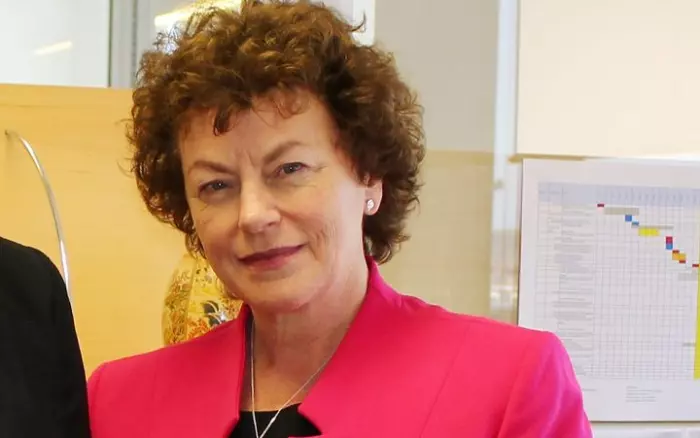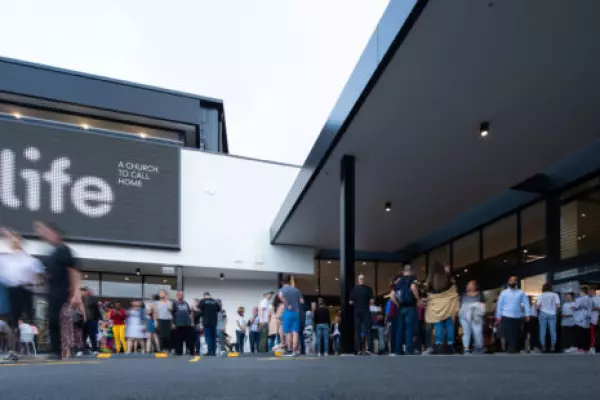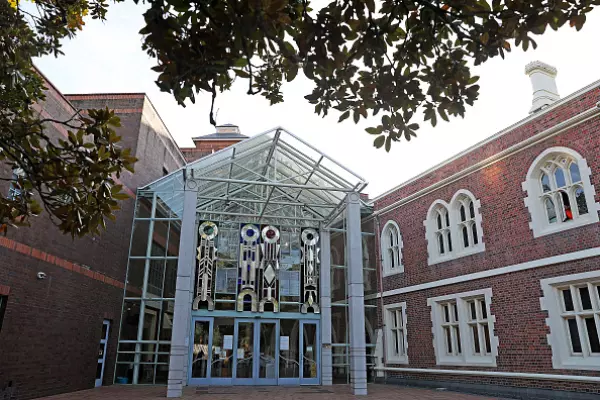To any layperson, there’s little discernible connection between the New Zealand courts and Dayton Ohio. But back in 1986, whenever University of Otago senior law lecturer Donna Buckingham wanted to access NZ court judgments, she would pick up a phone with an acoustic coupler on it and dial 30 numbers to connect with the midwestern US city.
It was an expensive process, Buckingham said. But back in those days, calling Dayton was what most people had to do if they needed to access NZ legal documents.
“That’s where the LexisNexis servers were,” she said. “So I could search for New Zealand legal information in Dayton but at eye-watering cost. It just struck me that this had to somehow get better.”
Over the next three decades, it certainly got better. LexisNexis still has its data centre in Dayton. But now, if anyone needs to access a high court judgment, an Advertising Standards Authority decision, or even, if they have the urge, a New Munster Provincial Ordinance from 1849, all they have to do is go to the NZ Legal Information Institute (NZLII).
Established by Buckingham and a collective of organisations in 2004, The NZ Legal Information Institute website is effectively a one-stop shop for much of the country’s case law, legislation, law journals and law reform papers. It stocks about 461,267 documents across 206 databases available for free, and has already had more than 20 million requests – or 51 a minute – this year.
And it’s mostly run by volunteers.
“Even lawyers I talk to assume we just get staggering amounts of funding. We get some funding from the University of Otago. But by and large, it's done on a lot of volunteer labour,” she said.
The idea
In the age of digital convenience, it’s easy to take something like NZLII for granted. But it emerged at a time when very little of NZ’s case law was publicly available. In 2003, Buckingham attended a meeting in Australia between the other “LII” groups – which make up the Free Access to Law Movement (FALM) – to discuss the barriers of accessing law documentation in NZ and the Pacific.
She pitched the idea of NZLII, and by the end of the conference came away with an indigenous resource that was able to operate through AustLII’s servers in Sydney.
“The guys in Sydney support us every step of the way in what we do. They supply all the delivery back end and have pretty much done so for free for 17 years.
“Otherwise the internet traffic cost would bury us.”
An alternative
A joint project of the Otago University law faculty, the Canterbury University law library and the Australian-based Australasian Legal Information Institute (AustLII), NZLII quickly provided a novel alternative for lawyers and the public at a time when only the court of appeal and the Waitangi tribunal were making their documents publicly available. In 2007 it already had 900,000 users.
“There was no high court coverage that was free, there was no district court coverage that was free,” said Buckingham.
“Even for lawyers, we were thinking, ‘is there another way to give them an alternative to the multinationals who they were paying subscription fees to?’”
A full-time academic at the University of Otago, Buckingham managed NZLII in her evening and weekend hours. However, with a $50,000 expansion grant from the Law Foundation, in 2007 she was able to bring on law library assistant Judi Eathorne-Gould, who has since managed the vast digital collection almost single-handedly. The Law Foundation has since provided a further $116,771 in funding for five separate projects.
“For the first three years it was a pretty lonely enterprise," Buckingham said. "I was a full-time academic doing this at nights and weekends, writing letters begging for data. When I brought Judi on, that really was the turning point.
“We both wanted the same thing – the public of New Zealand should have free access to public legal information.”
How it works
Eathorne-Gould says the information that appears on NZLII comes from a number of different sources. The supreme court uploads its own decisions, while cases from the district court and high court are identified with scripts written by a member of the British and Irish Legal Information Institute (BAILII).
Most of the bills, acts and regulations on the website come from the Parliamentary Counsel Office.
Buckingham said the wide range of legislation on the website alongside the case law is what makes it such a useful tool for lawyers to search across collections as they might do in a commercial service.
“You could search for big legal ideas that might be found in all parts of the system. And that's something lawyers sometimes do.
“They might not be looking just for a particular case. They might be looking for an approach to the bill of rights in relation to the right to refuse medical treatment that might come up in a case or a statutory provision or article. That's one of the great freedoms of an integrative collection.”
Buckingham also said the site is used by historians looking for a certain article that isn’t available anywhere else in electronic form. The team was able to upload early additions of government gazettes from 1841 to 1860, and Eathorne-Gould retyped a lot of constitutional documents from old newspapers and dispatches to the colonial office.
“We have had some amazing adventures in this digital space,” said Buckingham.
Funding
NZLII received 30 donations in 2021 – its best year yet. It was also supported by the Council for Law Reporting for five years, and Eathorne-Gould is completing a project supported by the Ministry of Business Innovation and Employment.
However, Buckingham said the funding is random at best and the response to appeals to lawyers for more support is often “modest”.
“People just take it for granted that it will always be there, that it runs by magic. This is an exercise in civic cooperation amongst a whole bunch of people and there is no real infrastructure to support it. We just do what we can on an annual basis.”
However, despite the persistent funding grind, she said NZLII has achieved its objective envisioned all those years ago – allowing people, non-lawyers especially, to access information that may have a fundamental impact on their own legal processes and therefore their lives.
“We have had lovely stories from members of the public about how much they had succeeded in a particular case where they didn't necessarily have a lawyer,” she said.
“NZLII has developed to the point that New Zealanders now have free access to a great deal of our primary law. I think that’s something to be proud of.”














